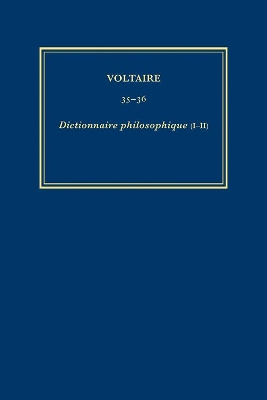Voltaire's monumental "Dictionnaire philosophique" was first published anonymously in Geneva in 1764, and became a lifelong project for Voltaire. The Dictionary form, pioneered by Bayle, was a uniquely Enlightenment phenomenon, but Voltaire's interest in the alphabetical structure is not simply a product of his time, and his dictionary stands apart from its predecessors as much as it follows them. It is overtly populist, intended as an inexpensive pocket edition to 'entertain and instruct' any would-be philosopher. Its non-linear, abridged form allows Voltaire the freedom to express himself. His targets range from sharp criticism of the Church and religious prejudice - particularly in the light of the institutional anti-protestant injustice of the Calas Affair - to his espousal of tolerance, freedom of expression and deism. These two volumes reproduce the "Dictionnaire" in its entirety, from 'Abbe' to 'Virtu', together with a detailed exploration of the book's composition, structure and reception. Contributors: Andrew Brown, Marie-Helene Cotoni, Jacqueline Hellegoarc'h, Ulla Koelving, Christiane Mervaud, Jeanne R. Monty, Jose-Michel Moureaux, Bertram Eugene Schwarzbach, Jeroom Vercruysse, Roland Virolle.
- ISBN13 9780729403757
- Publish Date 1 January 1994
- Publish Status Active
- Publish Country GB
- Imprint Voltaire Foundation
- Edition Critical edition
- Format Hardcover
- Pages 1434
- Language French
- URL http://voltaire.ox.ac.uk/book/dictionnaire-philosophique-i-ii
